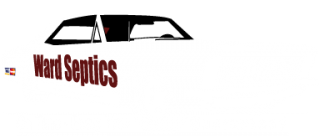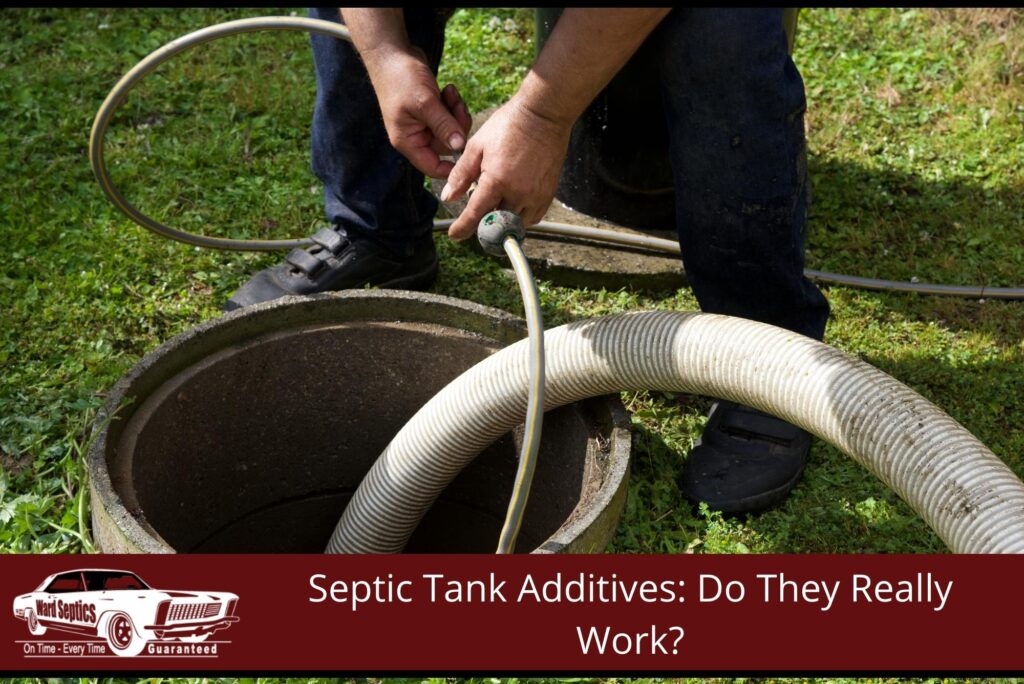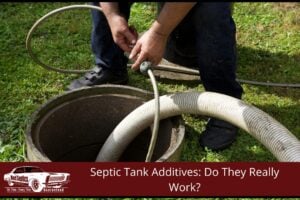Septic tank additives have gained popularity as a solution to maintain and extend the life of septic systems. However, there’s a lingering question that homeowners in Australia, like you, might have: Do these additives really work? In this article, we will explore the world of septic tank additives, examining their effectiveness, potential benefits, and whether they are a wise investment for maintaining your septic system.
The Function of Septic Tanks
Septic tanks play a crucial role in the treatment and disposal of household wastewater in many parts of Australia. These underground structures are designed to serve as self-contained sewage treatment systems for homes that are not connected to municipal sewer lines.
Wastewater Collection
The primary function of a septic tank is to collect and hold all the wastewater generated within a household. This includes water from toilets, sinks, showers, washing machines, and other household fixtures. The wastewater enters the septic tank through the inlet pipe, which is typically connected to the main plumbing system of the house.
Separation of Solids and Liquids
Inside the septic tank, a natural process of separation occurs. Solid waste, like human waste and food particles, is heavier and settles at the bottom of the tank, forming a layer of sludge. Meanwhile, lighter materials, such as soap and grease, float to the top, creating a scum layer. In the middle, a relatively clear liquid layer is formed, containing water and dissolved waste.
Microbial Action
The magic of a septic tank lies in the action of beneficial microorganisms. These naturally occurring bacteria and enzymes begin breaking down the organic matter in the tank. They feed on the solid waste, gradually decomposing it and converting it into liquid form. This process effectively treats the sewage within the tank.
Liquid Discharge
As the liquid layer in the septic tank reaches a certain level, it is released into the drain field or absorption area through an outlet pipe. This is where further treatment and filtration of the wastewater take place. The soil in the drain field acts as a natural filter, purifying the water before it enters the groundwater system.
Sludge Accumulation
Over time, the sludge layer at the bottom of the tank continues to accumulate, and this necessitates periodic maintenance. To prevent clogs in the system and ensure its proper functioning, the septic tank should be pumped and cleaned at regular intervals, usually every few years, depending on the size of the tank and the household’s water usage.
It’s important to note that the efficient functioning of a septic tank relies on a delicate balance of biological processes. Any disruption to this balance, such as excessive use of harmful chemicals or the introduction of non-biodegradable materials, can lead to problems and the need for more frequent maintenance.

What Are Septic Tank Additives?
Septic tank additives, often marketed as “miracle solutions,” are products designed to enhance the performance of septic systems. They typically come in liquid or powder form and claim to break down solids, reduce odours, and improve overall septic system efficiency. These additives are often comprised of enzymes, bacteria, or chemicals that are meant to accelerate the natural decomposition of waste inside the septic tank.
The Science Behind Septic Tank Additives
To understand whether septic tank additives work, it’s essential to grasp the science behind their claims. These products are primarily designed to enhance the microbial activity in your septic tank. The microorganisms responsible for breaking down waste in the tank require a balanced environment to thrive. Here’s where additives come into play:
Microbial Activity Boost
Many septic tank additives contain beneficial bacteria and enzymes that are intended to boost the microbial activity in the tank. These microorganisms play a crucial role in breaking down solid waste, turning it into liquid that can be safely discharged into the drain field.
Solid Waste Breakdown
The enzymes and bacteria in septic tank additives are formulated to accelerate the decomposition of solid waste. This means that less sludge accumulates in the tank, reducing the need for frequent pumping and maintenance.
Odour Control
Another claim made by septic tank additives is their ability to control odours. By promoting efficient waste breakdown, they can reduce the foul odours that can sometimes emanate from septic systems.
The Controversy: Do They Really Work?
Now that we understand the science behind septic tank additives, let’s address the key question: Do they really work? The answer is not as straightforward as we might hope. The effectiveness of these products is a topic of debate among experts and homeowners.
The Proponents
Proponents of septic tank additives argue that these products can indeed enhance the performance of septic systems. They cite benefits such as reduced sludge accumulation, improved waste breakdown, and fewer odours. Some even claim that regular use of additives can extend the lifespan of a septic system, potentially saving homeowners money in the long run.
The Sceptics
On the other hand, sceptics question the efficacy of septic tank additives. They argue that, in many cases, septic tanks function perfectly well without the need for these products. They also point out that using the wrong type of additive or using them incorrectly could disrupt the delicate balance of microorganisms in the tank, potentially causing more harm than good.
Are They Worth the Investment?
The decision to use septic tank additives ultimately comes down to whether they are worth the investment. Here are some factors to consider when making your decision:
Maintenance Costs
One of the key selling points of septic tank additives is that they can reduce the need for frequent pumping and maintenance. If you currently spend a significant amount on septic system upkeep, these additives might be a cost-effective solution in the long run.
Environmental Impact
Using septic tank additives should be done with care, as using the wrong products or overusing them can harm the environment. Always choose additives that are eco-friendly and safe for the delicate balance of your septic system.
Regular Maintenance
It’s important to note that septic tank additives are not a substitute for regular maintenance. Even if you use these products, you should still have your septic tank pumped and inspected by a professional on a regular basis.
Consult a Professional
Before deciding to use septic tank additives, it’s advisable to consult with a septic system professional. They can assess the condition of your system and provide guidance on whether additives are suitable for your specific situation.

Making Informed Choices for Your Septic System
The effectiveness of septic tank additives is a topic of ongoing debate. While they may offer benefits such as reduced sludge accumulation and improved waste breakdown, their use should be approached with caution. To determine whether septic tank additives are right for your septic system, consult with a professional who can provide tailored advice.
If you’re looking for expert septic system maintenance and consultation in Australia, Ward Septics is here to help. Contact Ward Septics on 0438 315 514 to learn more about our services and how we can assist you in maintaining a healthy and efficient septic system.
Remember, the decision to use septic tank additives should be based on your specific circumstances and needs. With the right guidance, you can make an informed choice that ensures the longevity and effectiveness of your septic system.








